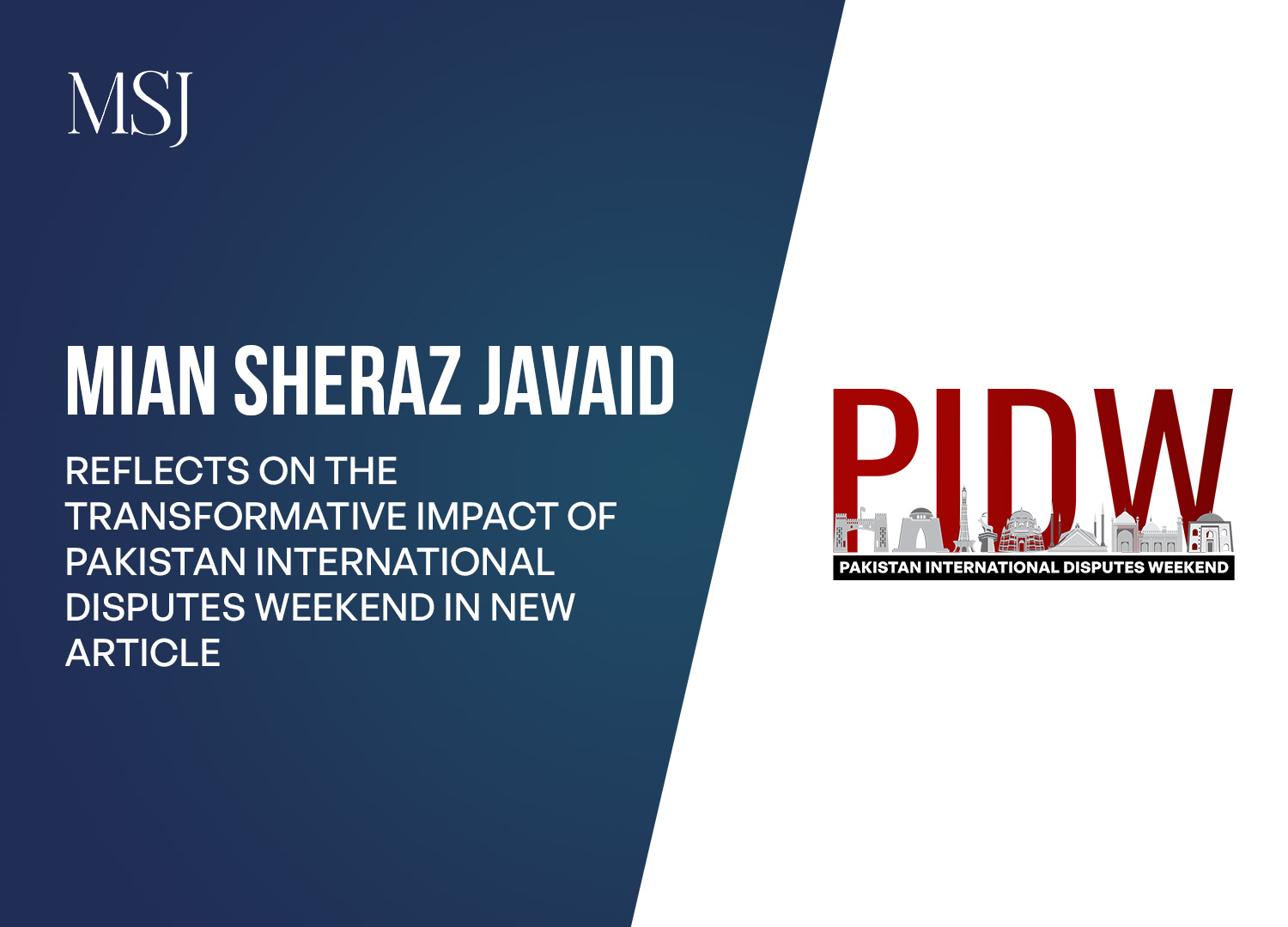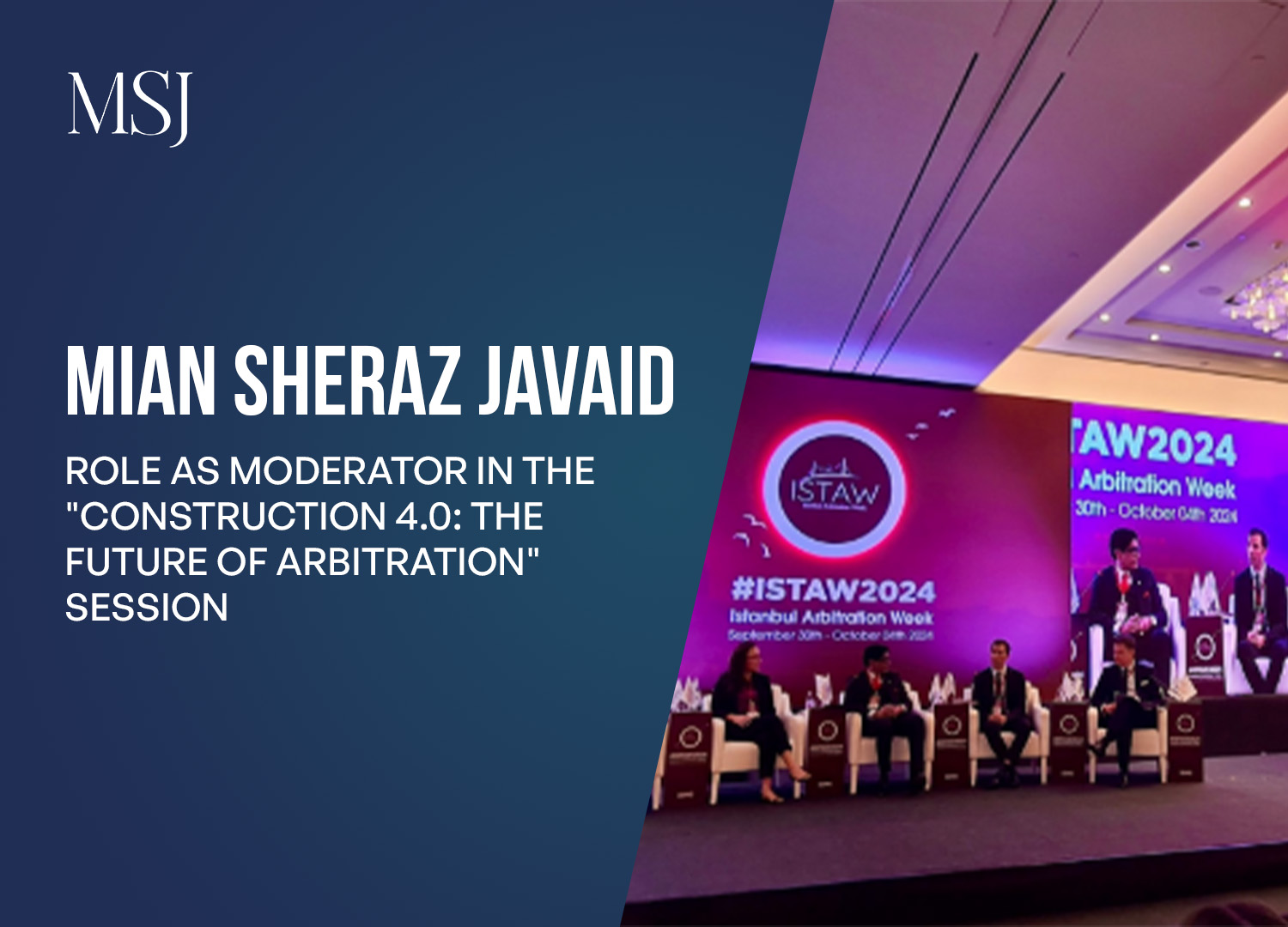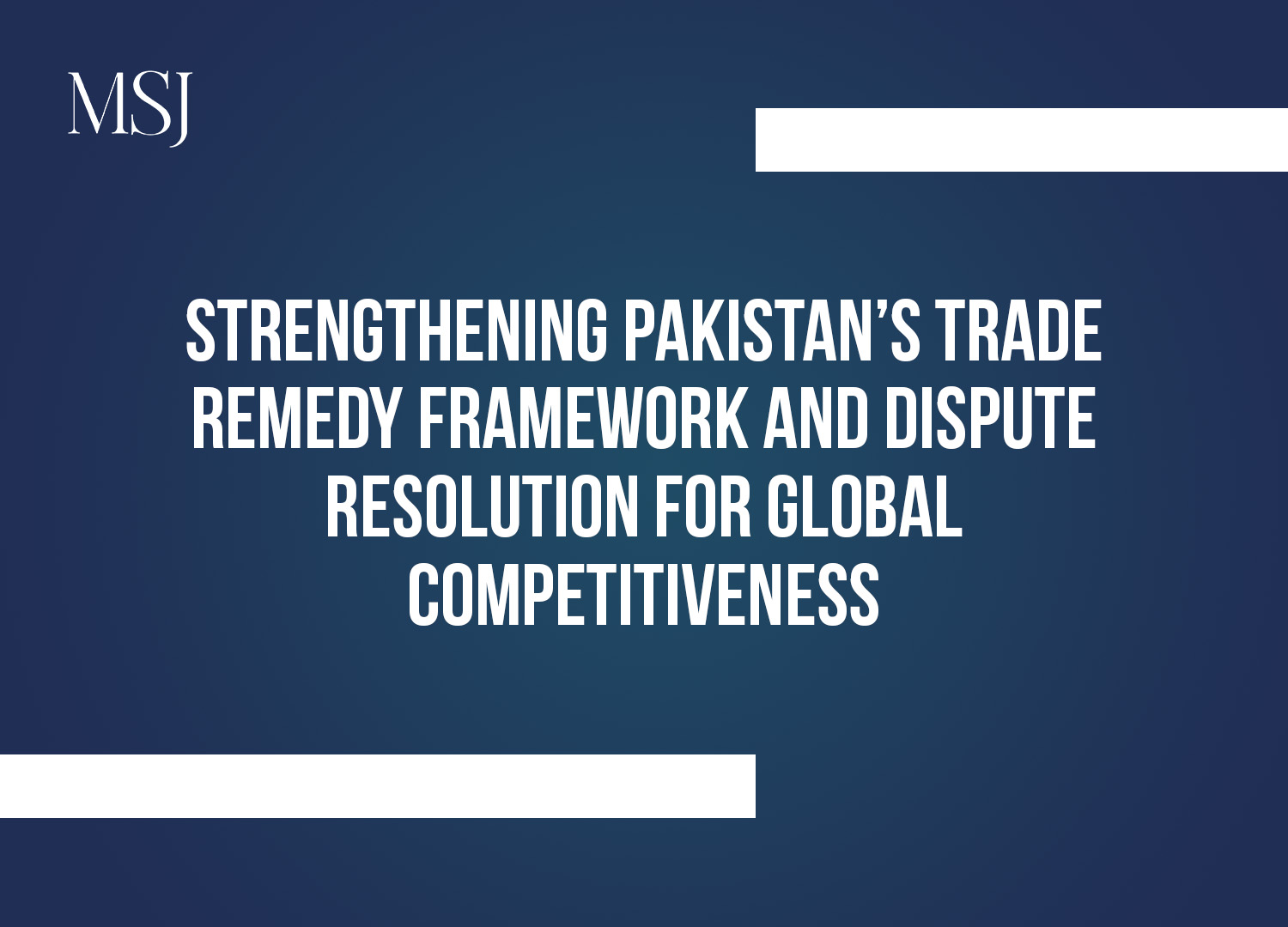Mian Sheraz Javaid Analyzes Pakistan’s Construction Sector: A New Era with the PEC’s Updated Conditions of Contract
The construction sector of Pakistan is one of the most significant contributors to the country's economy, with an impressive contribution of nearly PKR 1,848 billion to the GDP in the financial year 2022, registering a growth rate of 31.1%. The Business Monitor International also expects a promising future for the sector, predicting a growth rate of 9.1% from 2016 to 2025. Given its vast contribution to the national economy, Sheraz further emphasises the importance of continuous reform and modernisation to ensure the construction industry is competitive and efficient.
The Role of the Pakistan Engineering Council and the Need for Standardisation
According to Sheraz, the PEC plays a great role in managing the construction industry in Pakistan, and PEC is considered to be the key regulatory body as it has set all the requirements regarding engineers and contractors having to qualify appropriately for their services within the construction sector. PEC’s mandate also includes the promotion of uniformity across the sector through the development of standardised documents—most notably, the Conditions of Contract, which set the guidelines for transparent bidding, evaluation, and execution of construction contracts.
Standardised documents are emphasised as crucial, especially in a sector where lack of uniformity and clear guidelines leads to much confusion, inefficiencies and disputes. Sheraz explains that many government departments and autonomous bodies had been preparing their own contract documents, leading to inconsistent practices that resulted in increased costs and contractual disputes. The PEC's Conditions of Contract are designed to overcome these challenges, ensuring that construction contracts are prepared on an equitable and transparent basis, benefiting all stakeholders involved.
Initially formulated in 1992, PEC’s Conditions of Contract were based on recommendations made by a committee that reviewed existing rules and procedures for awarding large contracts. These early versions were designed to minimise malpractices in contract execution and to ensure better governance within Pakistan’s construction industry.
The Upgrade to the PEC Conditions of Contract 2017
In his article, Sheraz particularly focuses on the recent and long-awaited upgrade to the Conditions of Contract, announced in May 2024. Through this update, the construction contracts in Pakistan will be better aligned with the latest international standards, especially the FIDIC (Fédération Internationale des Ingénieurs-Conseils) 2017 edition. The revised Conditions of Contract now comply with the global norms outlined by institutions such as the Asian Development Bank (ADB) and the World Bank, making the construction process in Pakistan more compatible with international practices.
The 2017 update introduces a comprehensive framework for agreements between various parties involved in construction projects, including clients, contractors, and consultants. Sheraz views this as a significant leap forward for Pakistan’s construction sector, as it modernises the country’s contracting practices, improving transparency, clarity, and project efficiency.
One of the most notable changes brought about by the 2017 update is the alignment with FIDIC’s Red Book (2017 edition). This adoption marks a paradigm shift in Pakistan’s approach to construction contracts, moving from outdated 20th-century practices to more modern, globally accepted methods. The PEC’s new Conditions of Contract offer better risk allocation, clearer dispute resolution provisions, and an overall more efficient process for managing construction projects.
Dispute Resolution and the Introduction of Dispute Avoidance/Adjudication Boards (DAABs)
An important feature of international construction contracts is the use of Dispute Avoidance/Adjudication Boards (DAABs). Introduced in the FIDIC 1999 editions and later incorporated in the 2017 version, these boards provide an integral mechanism for resolving disputes in real time. Sheraz notes the growing importance of DAABs in construction contracts, especially in complex projects involving multiple stakeholders. Due to the technical and multifaceted nature of construction disputes, the role of DAABs is crucial in preventing conflicts from escalating, which can otherwise lead to costly delays, deteriorated relationships amongst stakeholders, and project setbacks.
The updated Conditions of Contract in Pakistan now include provisions for the establishment of DAABs, allowing construction projects to benefit from efficient and timely dispute resolution mechanisms. This is a crucial step in improving the overall dispute resolution process in Pakistan’s construction industry. The introduction of DAABs is expected to significantly reduce the burden on the judicial system by resolving disputes without the need for lengthy and costly litigation.
According to Sheraz’s article, the inclusion of DAABs will help align Pakistan’s dispute resolution mechanisms with international standards, ensuring that the country’s construction industry is not only more efficient but also more attractive to foreign investors who are accustomed to these practices.
Implications for Project Management and Legal Framework
Additionally, Sheraz discusses the broader implications of the 2017 updates on project management and the legal framework governing construction projects. The new Conditions of Contract address critical areas such as risk allocation, dispute resolution, and project management—three aspects that have often led to inefficiencies and disputes in the past. By incorporating international best practices, the updated conditions ensure that the roles and responsibilities of all parties involved in construction projects are more clearly defined, reducing ambiguity and the potential for conflict.
Moreover, the updated framework enhances project management by providing a more balanced approach to dealing with unforeseen circumstances, delays, and changes during the course of construction. This is particularly important for large-scale infrastructure projects that often face unpredictable challenges.
Sheraz points out that the introduction of these updates signals a broader effort to modernise Pakistan’s construction industry and bring it in line with global standards. These changes are expected to promote greater efficiency, reduce project delays, and lower overall construction costs, while also fostering a more transparent and reliable environment for contractors, consultants, and clients alike.
A Promising Future for Pakistan’s Construction Sector
Despite the significant progress made in modernising the Conditions of Contract, Sheraz concludes by acknowledging that the road ahead for Pakistan’s construction sector is not without challenges. While the updates bring Pakistan’s contractual practices closer to international standards, the full implementation and adoption of these new practices will require time, training, and adjustments by all stakeholders.
However, Sheraz remains optimistic about the future of Pakistan’s construction industry. With the PEC’s updated Conditions of Contract, the inclusion of DAABs, and a stronger regulatory framework, Pakistan is poised to become a more competitive and attractive destination for construction and infrastructure investments. By aligning its practices with global standards, Pakistan’s construction sector can expect to see increased foreign investment, better project execution, and a more efficient dispute resolution process.
In conclusion, Sheraz’s article paints an optimistic picture of the future of Pakistan’s construction industry. The recent updates to the Conditions of Contract mark a significant step forward in modernising the sector, aligning it with international best practices, and improving efficiency across all stages of construction. With a stronger regulatory framework, better dispute resolution mechanisms, and clearer guidelines for project execution, Pakistan is on track to enhance the competitiveness and sustainability of its booming construction sector.









